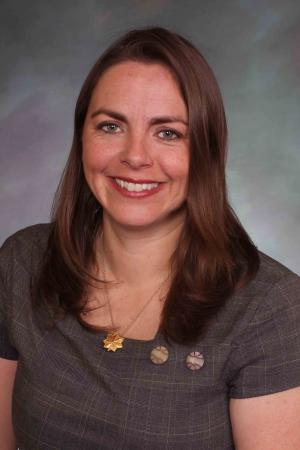DENVER — A bill that critics say would ignore protections under the First Amendment of the U.S. Constitution, passed out of committee on Tuesday and is headed to the Senate floor, with one major amendment.
The bill, which originally would have put harsh new restrictions and sanctions on social media sites, will now create a “study group” to look at what can be done to hold social media platforms accountable for the content on their sites.
The change came after the bill’s sponsor, Senator Kerry Donovan, the Western Slope Democrat who has announced her intention to challenge Rep. Lauren Boebert, R-Rifle for Congressional District 3, received backlash over the intent of the bill, including from several columnists for Complete Colorado.
“The level of vitriol I’ve experienced on this bill has been out of this world, astronomical if you will,” Donovan said in committee. “I have never been called quite so many names and had quite so many threats fall into my email account and ironically my social media feeds.”
Senate Bill 21-132, Digital Communications Regulation, initially would have created a new division of Colorado government charged with policing speech on social media platforms. The bill specifically required a fee-based registration with the state for “digital communications platforms, which are certain communications-oriented online businesses, such as social media platforms or media-sharing platforms, that conduct business in Colorado or own or operate services that are offered to Colorado residents.”

Donovan said those include such giants as Facebook, Twitter, YouTube, etc. Any platform that supplies a user-to-user connection and encourages content creation that facilitates communication.
“These businesses,” Donovan said. “Their business model is designed to keep you on their platform, connected and engaged online to gather your info.”
That is the underlying problem said Donovan, who promised members of the Senate’s State, Veteran’s Affairs, and Military committee she was not looking to subvert the First Amendment.
“I wanted to present an idea on how to deal with this,” Donovan said. “Our job is to identify things that are not working well and identify ideas that make them work better. It’s not our job to override the Constitution.”
Donovan called the bill “a new idea in an uncomfortable space,” adding she had not heard from any of the social giants or their lobbyists about the bill because the think they are above legislators.
“My job as an elected official is to look at what’s happening in my neighborhood and my community and say we should at least try to solve this and have a discussion about this,” Donovan said. “They are petulant children refusing to acknowledge they are responsible for what happens on their platforms. They certainly could figure out how to monitor my behavior online and deliver me a kitten food ad, but heaven forbid they figure out how to regulate or monitor hate speech.”
Not everyone agrees, however.
Jeffrey Roberts, executive director of the Colorado Freedom of Information Coalition, told Complete Colorado previously that although his executive committee has not taken an official position on the legislation, yet, the bill is problematic.
“Misinformation and disinformation are a huge problem. We have got to do something about that somehow, but we are concerned about any legislative act that were to impose government sanctions on First Amendment protected speech,” Roberts said, adding that there are terms in the bill that are subjective and not defined, such as hate speech, intentional misinformation, conspiracy theories, and fake news.
“We don’t know what those mean or how those would be interpreted,” Roberts said.
Joshua Sharf, a fiscal policy analyst for the Independence Institute* and frequent contributor to Complete Colorado wrote in a recent opinion piece on the bill, “the idea of an independent public oversight board might work for the police, but it’s almost impossible to see what its legitimate role would be with respect to Twitter or Complete Colorado,”
Sharf continued, “And what on earth would a public social media alternative site look like? Why should it be trusted to be impartial or even accurate in its own judgments about user-generated content?” He doubled-down on that statement after the committee hearing.
“It no longer calls for a commission to censor social media,” Sharf told Complete Colorado, “Rather, it calls for the Joint Technology Committee to study how it can censor social media. To nobody’s surprise, the revised bill enjoys support among the press as well, which would like to censor its competition.”
*Independence Institute is the publisher of Complete Colorado.


